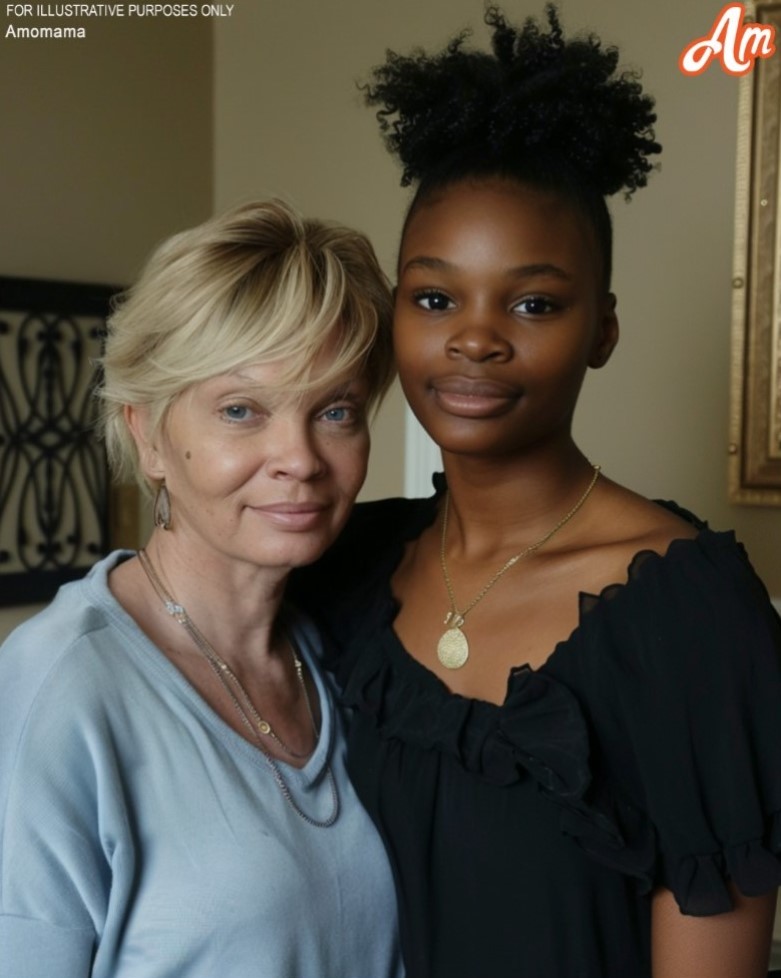For many years, Carol lived in the shadow of her stepfamily, an invisible figure in a house that never quite felt like home. Then, an unexpected phone call from a lawyer changed her life forever. Her stepmother, Linda, who had shown her little love, had left Carol a $2.5 million vacation home in her will. Meanwhile, Linda’s daughters, Amanda and Becca, received only $5,000 each. The reasoning behind Linda’s decision was as shocking as the inheritance itself.

When I was 12, my dad remarried Linda, bringing her and her two daughters, Amanda and Becca, into our lives. They were older than me, confident, and the stars of every family moment. Linda’s world revolved around them, and I always felt like an afterthought. While Amanda and Becca basked in attention, I lingered on the sidelines, trying to find my place in a family that seemed to have no space for me.
Family gatherings were the worst. Amanda and Becca would effortlessly command the spotlight while Linda proudly celebrated their accomplishments. “Look at my daughter’s straight A’s,” she’d say with glowing pride. Meanwhile, my report cards—just as good, if not better—sat unnoticed on the counter, gathering dust. My attempts to connect, like offering Becca help with homework, were met with disdain. “I’ve got it,” she’d reply coldly, dismissing me without a second thought.
Linda wasn’t outright cruel, but she wasn’t warm either. She rarely acknowledged me, and her indifference felt like rejection. Family trips and holiday plans revolved around Amanda and Becca’s desires, leaving me to feel like an outsider in my own home. When I was 16, I asked Linda why everything seemed to center on her daughters. She barely looked at me as she replied, “You’re not the only one here, Carol. Stop acting like a victim.”
Her words stung deeply, and I carried their weight for years. By the time I turned 18, I had reached my limit. I left for college and went no-contact with Amanda and Becca, keeping Linda at a distance. When my father passed away two years later, the fragile connection holding us together dissolved completely.
For 15 years, I barely thought about Linda. I built a life with my husband, David, and our two kids, creating the family I had always wanted. Then, one day, a phone call from Linda’s lawyer shattered my carefully constructed world.
“Carol, this is Mr. Higgins, Linda’s attorney,” the voice on the other end said.
Confused, I replied, “Okay… why are you calling me?”
“I’m sorry to inform you that Linda passed away last week from lung cancer,” he said gently.
His words hit me like a ton of bricks. Memories of Linda’s cold glances and dismissive comments flooded my mind. I hadn’t even known she was sick. We’d been so distant that her illness—and even her death—had gone unnoticed by me.
“What does this have to do with me?” I asked hesitantly.
“She named you in her will,” he said. “Linda left you her vacation home.”
My heart stopped. “Her vacation home?”
“Yes,” he confirmed. “The property your father once owned, valued at $2.5 million. Amanda and Becca were left $5,000 each.”
The news left me reeling. After years of feeling invisible, Linda had left me her most valuable possession while giving her daughters next to nothing. The decision made no sense. Why would she do this?
Before I could process it, my phone buzzed with incoming texts. Amanda and Becca had found out and were furious. Amanda accused me of manipulating Linda, while Becca ranted about “backstabbers destroying families.” Their words stung, but they also felt familiar, echoing the years of dismissal I had endured as a child.
“Why would Linda do this?” I asked David, who sat beside me, reading the messages with a furrowed brow.
“Maybe you need to find out,” he said gently.
Determined to understand, I visited the vacation home. Stepping inside was like walking into the past. The house, nestled by a peaceful lake, had been my father’s sanctuary. Memories of fishing with him and listening to his stories filled the air. But I wasn’t there for nostalgia—I needed answers.
In Linda’s office, I found a sealed letter addressed to me. My hands trembled as I opened it, knowing it might hold the key to her decision.
“Dear Carol,
By the time you read this, I hope you’ll understand my choice.
I failed you as a stepmother. I was so focused on Amanda and Becca that I couldn’t see the harm I was causing you. I watched you endure our family’s coldness and did nothing to stop it.
This house is my apology. Your father loved it, and I hope it becomes a place of peace for you, just as it was for him.
Forgive me, if you can.
Linda”
Her words hit me like a tidal wave. Linda had known all along how unfair she had been but had lacked the courage to address it while alive. The house was her way of making amends.
A week later, Linda’s lawyer informed me of a second clause in her will. She had set aside a $5 million trust for Amanda and Becca, but there was a condition: they could only inherit if they treated me respectfully. Their hostile reactions voided the trust, and the money was donated to charity instead.
That evening, as David and I sat on the porch of the vacation home, I reflected on Linda’s actions. “She waited too long,” I said softly. “But at least she tried.”
Linda’s final act wasn’t just an inheritance—it was an apology, a chance to heal, and an opportunity to reclaim a piece of my father’s legacy. And for that, I am grateful.